- Home
- Paulo Coelho
Hippie Page 4
Hippie Read online
Page 4
But forgiveness is a delicate art. Throughout all of his travels he’d sought to be one with the universe. But this didn’t include, at least not at that moment in his life, putting up with those who always laughed at his long hair, stopped in the street to ask how long it had been since he’d had a shower, told him that his bright-colored clothes showed he wasn’t secure in his own sexuality, asked how many men he’d slept with, told him to quit being a bum, stop the drugs, and find a decent job, to do his part to lift the country out of its economic crisis.
His hatred of injustice, the desire for revenge, and the lack of forgiveness didn’t allow him to focus as he should have, and soon his meditation was interrupted by sordid thoughts—sordid but justified, the way he saw it. Had they told his family?
His parents hadn’t known when he planned to return, but they wouldn’t have thought anything of his prolonged absence. Both his father and mother always blamed it on the fact that he had a girlfriend eleven years his senior, who sought to use him to fulfill unspeakable desires, to break the routine of a frustrated socialite and foreigner in the wrong country. She was a manipulator of young men who needed a mother figure. Paulo was not like all his friends, like all his enemies, like everyone else in the world who lived their lives without causing problems for anyone, without forcing their families to explain their sons’ lives, without being looked at like those people who hadn’t raised their children right. Paulo’s sister was studying chemical engineering and distinguishing herself as a top student, but their pride in her was not enough, for his parents were much more worried about returning him to the world they knew.
Anyway, after some time, it was impossible to say how much, Paulo began to think he deserved everything that was happening to him. Some of his friends had joined the armed resistance knowing what awaited them, and only he had paid the consequences—his punishment must have come from the heavens, not men. For all the distress he’d caused, he deserved to be naked on the floor of a cell with three bullet holes (he’d counted), looking deep inside himself and finding no strength, no spiritual consolation, no voice like the one that spoke to him at the Gate of the Sun.
All he did was sleep. Always thinking he would wake up from the nightmare and always opening his eyes in the same place, on the same floor. Always thinking that the worst was over, and always waking up in a sweat, racked with fear, each time he heard a knock on the door—perhaps they hadn’t been able to confirm anything he said and the torture would resume, even more violent than before.
Someone knocked on the door—Paulo had just finished his dinner, but he knew they might well serve him breakfast to increase his sense of disorientation. He put on his hood, heard the sound of the door opening and someone throwing things across the floor.
“Get dressed. Careful not to remove your hood.”
It was the voice of the “good cop,” or the “good torturer,” as he preferred to refer to him privately. The man stood there while Paulo got dressed and put on his shoes. When he’d finished, the man grabbed him by the arm, asked him to be careful with the metal bar at the door (where he’d already passed many times on his way to the bathroom, but perhaps this man had felt the need to say some kind words), and reminded him that his only scars were those he’d inflicted himself.
They walked for about three minutes, and then another voice spoke: “The Variant is waiting for you outside.”
Variant? Later he realized it was a type of car, but at that moment he thought it was some sort of code, something like “the firing squad is ready and waiting.”
They led him to the car and handed him some paper and a pen that he could just make out from beneath his hood. He didn’t even think about reading it, he’d sign whatever they wanted, his confession would at least put an end to his maddening isolation. But the “good torturer” explained that it was a list of his belongings found in the hotel. The backpacks were in the trunk.
The backpacks! He had said “backpacks,” plural. But Paulo was in such a daze that he didn’t even notice.
He did as he was told. A door opened on the other side of the car. Through the opening in his hood, Paulo caught a glimpse of familiar clothing—it was her! They ordered her to do the same thing, to sign a document, but she refused, saying she had to read what was written first. Her tone of voice made it clear she hadn’t panicked through the entire ordeal; she was in full control of her emotions, and the figure waited obediently as she read. When she finished, she finally signed the piece of paper and then placed her hand on Paulo’s.
“No physical contact,” the “good torturer” said.
She ignored him, and for a second, Paulo thought they would both be taken inside again and beaten for disobeying. He tried removing his hand, but she tightened her grip and held it there.
The “good torturer” simply closed the door and ordered the car forward. Paulo asked her whether she was all right, and she responded by railing against everything that had happened. Someone gave a chuckle in the front seat, and Paulo asked her to please quiet down, they could discuss it all later, or another day, or wherever it was they were being taken—perhaps a real prison.
“No one makes you sign a document saying our things have been returned to us if they have no intention of letting us out,” she told him. The figure in the front seat laughed again—actually, there were two people laughing. The driver was not alone.
“I’ve always heard that women are more courageous and more intelligent than men,” one of them said. “We’ve noticed this here among the prisoners.”
This time, it was the passenger who asked his companion to quiet down. The car sped on for a while longer, stopped, and the man on the driver’s side asked them to remove their hoods.
It was one of the men who had nabbed the couple at the hotel, he was of Asian descent—this time, he was smiling. He climbed out with them, went to the trunk, grabbed their backpacks, and handed them over instead of throwing them on the ground.
“You can go now. Take a left at the next light, walk about twenty minutes, and you’ll be at the bus station.”
He got back in the car and slowly pulled away, as though he didn’t have a care about everything that had just taken place. That was the way things were now in Brazil, he was in control, and there was nothing anyone could do about it.
Paulo glanced over at his girlfriend, who glanced back. They embraced and held their kiss for some time and then continued on to the bus station. It was dangerous to stay there, he thought. His girlfriend didn’t seem to have changed a bit, as though all those days—weeks, months, years?—had merely been a short pause in the trip of their dreams, as though the positive memories were what remained and could not be overshadowed by what had happened. He picked up the pace, avoiding any suggestion that everything was her fault, that they never should have stopped to see the sculptures molded by the wind, that if they had kept moving, none of those things would have happened—though it wasn’t anybody’s fault, not his girlfriend’s, not Paulo’s, not that of anyone they knew.
He was being ridiculous and weak. Suddenly he felt a terrible headache, so intense he almost couldn’t walk any further, flee back to the city where he’d grown up, or return to the Gate of the Sun and ask the ancient and forgotten inhabitants there what had happened. He propped himself up against a wall and let the backpack slide to the ground.
“You know what that is?” his girlfriend asked—and then quickly gave the answer. “I know the answer because I’ve already been through the same thing when my country was being bombed. The whole time, it was like my brain slowed down, the blood didn’t flow to my arteries the way it did before. It’ll pass in two or three hours, but we’ll buy some aspirin at the bus station.”
She grabbed his backpack, lifted him with her shoulder, and dragged him forward—slowly, at first, then gradually gaining speed.
Oh, woman, what a woman. A shame that when he s
uggested they set off together for the two centers of the world—Piccadilly Circus and Dam Square—she told him she was tired of traveling and, to be honest, she no longer loved him. They ought to go their separate ways.
The train stopped, and the dreaded sign written in several languages came into view: BORDER CONTROL.
Some officers boarded and began to walk the aisles. Paulo was calmer now, the exorcism was over, but he couldn’t get a verse from the Bible, more precisely from the Book of Job, out of his head: “What I feared has come upon me.”
He needed to remain in control—anyone is capable of sniffing out fear.
Whatever. If, as the Argentinean said, the worst thing that could happen would be their getting turned away, there was no problem. There were other borders they could cross. And if somehow they didn’t manage, there was always the other center of the world—Piccadilly Circus.
Paulo was overcome with a deep sense of calm after reliving the terror he’d experienced a year and a half earlier. As though everything truly had to be faced without fear, as a mere fact of life—we don’t choose the things that happen to us, but we can choose how we react to them.
He realized that up until that moment the cancer of injustice, of despair, and of powerlessness had begun spreading throughout his entire astral body, but now he was free.
He was beginning anew.
The border agents entered the cabin where Paulo and the Argentinean sat with four other people they didn’t know. As expected, the guards ordered the two of them to step off the train. Outside, there was a chill in the air, though night had only just begun to fall.
But nature follows a cycle that’s repeated in the human soul: a plant gives birth to the flower so that the bees might come and create the fruit. The fruit produces seeds, which transform once again into plants, which again bloom with flowers, which attract the bees, which fertilize the plant and cause it to produce yet more fruit, and so on and so forth until the end of eternity. Greetings, autumn, time to leave behind all that is old, the terrors of the past, and make way for the new.
Some of the young men and women were led inside the customs station. No one said a thing, and Paulo made sure to stay as far away as possible from the Argentinean—who took note and did not seek to burden him with his presence or his conversation. Perhaps he understood at that moment that he was being judged, that the young man from Brazil must have had his suspicions, but he’d seen Paulo’s face as it was covered by a dark shadow, and now it was full of light once again—perhaps “full of light” was an exaggeration, but at the very least the intense sadness of only moments before had disappeared.
* * *
—
They began calling each person individually to a room—and no one knew what was said inside because they exited through another door. Paulo was the third to be summoned.
Seated behind a desk was a uniformed guard who asked for Paulo’s passport and leafed through a large file full of names.
“One of my dreams is to go…” Paulo began, but he was immediately warned not to interrupt the official as he worked.
His heartbeat quickened, and Paulo was battling against himself, to believe that autumn had arrived, dead leaves had begun to fall, a new man had been born from the individual who until then had been in absolute tatters.
Bad vibrations only attract more bad vibrations, so he tried to calm himself down, particularly after he noticed the guard was wearing an earring in one ear, something unthinkable in any of the other countries he’d visited. He sought to distract himself with the room full of documents, a photo of the queen, and a poster of a windmill. The figure before him quickly set the list aside and didn’t even bother asking what Paulo was going to do in Holland—the guard only wanted to know if he had enough money for the trip back to his country.
Paulo confirmed he did—he had learned that this was the main condition for travel to any foreign country and had bought an outrageously expensive round-trip ticket arriving first in Rome, even though the return date was a year out. He reached for the belt that stayed hidden around his waist, ready to provide proof for what he’d said, but the guard told him it wasn’t necessary, he wanted to know how much money he had.
“Around sixteen hundred dollars. A little more, perhaps, but I’m not sure how much I spent on the train.”
He’d stepped off the plane in Europe with seventeen hundred dollars, his earnings as a college entrance exam instructor at the theater school he had himself attended. The Rome ticket had been the cheapest he could find; when he arrived there he’d discovered via the “Invisible Post” that there the hippies often gathered in the Piazza di Spagna, at the foot of the Spanish Steps. He’d found a place to sleep in a park, lived off sandwiches and ice cream, and could have stayed in Rome—where he’d met a Spanish woman from Galicia who immediately became a friend and shortly thereafter his girlfriend. He had finally bought the bestseller of his generation, which he had no doubt was about to make all the difference in his life: Europe on 5 Dollars a Day. During the days he’d spent on the Piazza di Spagna, he’d noticed that it wasn’t only the hippies who used the book—which listed the cheapest hotels and restaurants, plus important tourist attractions in each city—but more conventional travelers, too, known as “squares.”
He would have no trouble getting around when he arrived in Amsterdam. He had decided to continue on toward his first destination (the second was Piccadilly Circus, as he never tired of remembering) when the Spanish woman told him she was going to Athens, in Greece.
* * *
—
Once again he reached for his money, but he quickly received his stamped passport back. The agent asked whether he was carrying any fruits or vegetables—he was carrying two apples, and the guard asked him to throw them in a trash bin just outside the station as soon as he left.
“And how do I get to Amsterdam from here?”
He was informed he would need to take a local train, which passed by every half hour—the ticket he’d bought in Rome was good to his final destination.
The agent directed him to the exit, and Paulo once again found himself out in the fresh air, waiting on the next train, surprised and pleased that they had taken him at his word when it came to his ticket and the money he was carrying.
Truly, he was in another world.
Karla didn’t waste an entire afternoon sitting around in Dam Square, particularly because it had begun to rain and the psychic had assured her that the person she was waiting for would arrive the following day. She’d decided to go to the movies to watch 2001: A Space Odyssey, which everyone had told her was a masterpiece, despite the fact she didn’t have much interest in science fiction films.
Alas, it truly was a masterpiece. The film had helped her kill some time while she waited, and the ending showed her something she thought she knew—but in reality it wasn’t a question of what she thought or didn’t think, it was an absolute and indisputable fact: time is circular and always returns to the same spot. We are born from a seed, we grow, we age, we die, we return to the earth and again become the seed that, sooner or later, becomes reincarnate in another person. Though her family was Lutheran, she had flirted for a time with Catholicism, and during the Mass she had begun to attend regularly, she would recite all the professions of faith. This was the line she liked the most: “I believe […] in the resurrection of the body and life everlasting. Amen.”
The resurrection of the body—she had tried once to speak to a priest about that passage, asking him about reincarnation, but the clergyman told her it wasn’t about that at all. She asked him what it was about. His response—as stupid as they come—was that she didn’t yet have the maturity to understand. At that moment she began to slowly drift away from Catholicism because she’d noticed that the priest had no idea what the passage was about either.
“Amen,” she repeated that day as she made her way back
to her hotel. She kept her ears open for anything, in case God decided to speak to her. After distancing herself from the Church, she decided to seek out—via Hinduism, Taoism, Buddhism, African religions, the various forms of yoga—some sort of response to her questions about the meaning of life. A poet had said many centuries before: “Your light fills the entire Universe / The lamp of love burns and rescues Understanding.”
Because love had always been such a complicated thing throughout her life, so complicated that she constantly avoided thinking about it, she arrived at the conclusion that this Understanding was within herself—that was, after all, what the founders of each of these religions had preached. And now that everything she saw reminded her of the Lord, she sought to make each of her actions a gesture of thanks for her life.
That was enough. The worst killing is that which kills the joy we get from life.
* * *
—
She stopped in a coffee shop, where there were several varieties of marijuana and hashish for sale. But the only thing she did was drink a coffee and trade a few words with another young woman, also Dutch, who seemed out of place and was also there having a coffee. Wilma was her name. They decided they would go to the Paradiso but they soon changed their minds, perhaps because the place was no longer a novelty for anyone, just as the drugs sold there weren’t either. A great thing for tourists but boring for those who had always had them within reach.
One day—one day in a far-off future—governments around the world would conclude that the best way to put an end to all they considered a “problem” was to legalize it. A great deal of hashish’s mystique was its being illegal and, as a result, highly sought after.

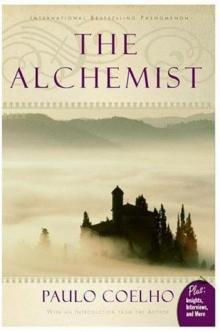 The Alchemist
The Alchemist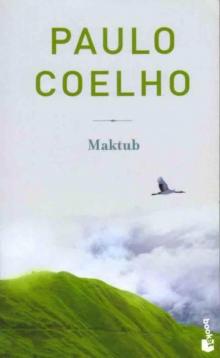 Maktub
Maktub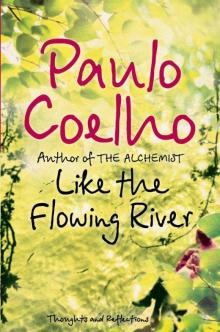 Like the Flowing River
Like the Flowing River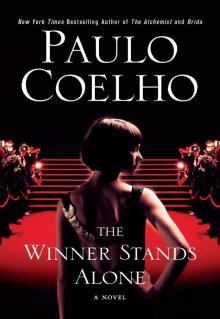 The Winner Stands Alone
The Winner Stands Alone The Spy
The Spy By the River Piedra I Sat Down and Wept: A Novel of Forgiveness
By the River Piedra I Sat Down and Wept: A Novel of Forgiveness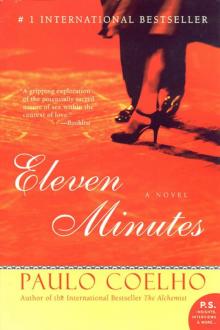 Eleven Minutes
Eleven Minutes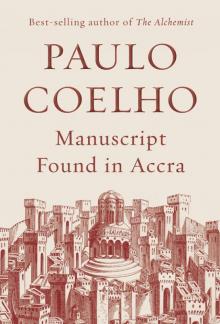 Manuscript Found in Accra
Manuscript Found in Accra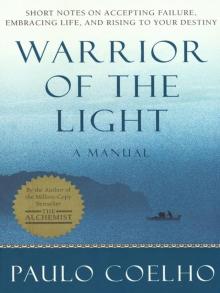 Warrior of the Light
Warrior of the Light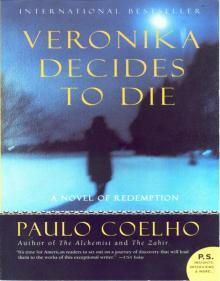 Veronika Decides to Die: A Novel of Redemption
Veronika Decides to Die: A Novel of Redemption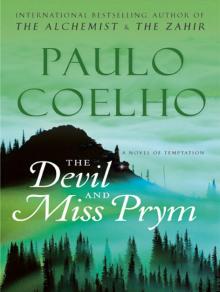 The Devil and Miss Prym: A Novel of Temptation
The Devil and Miss Prym: A Novel of Temptation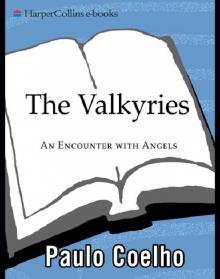 The Valkyries: An Encounter With Angels
The Valkyries: An Encounter With Angels Brida: A Novel
Brida: A Novel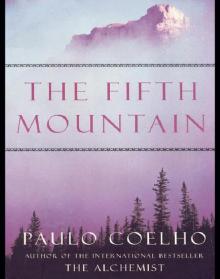 Fifth Mountain: A Novel
Fifth Mountain: A Novel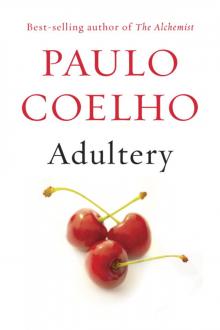 Adultery
Adultery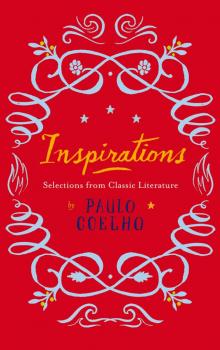 Inspirations
Inspirations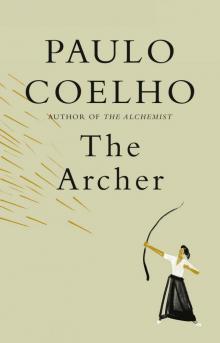 The Archer
The Archer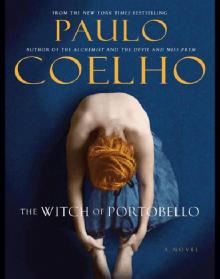 The Witch of Portobello
The Witch of Portobello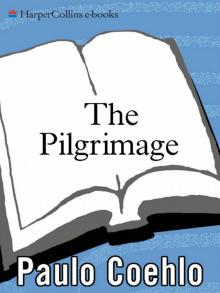 The Pilgrimage
The Pilgrimage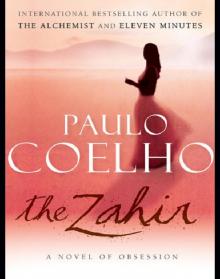 The Zahir
The Zahir Brida
Brida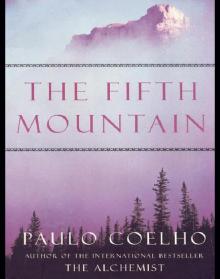 The Fifth Mountain
The Fifth Mountain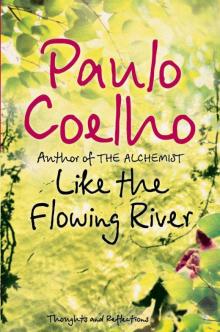 Like the Flowing River: Thoughts and Reflections
Like the Flowing River: Thoughts and Reflections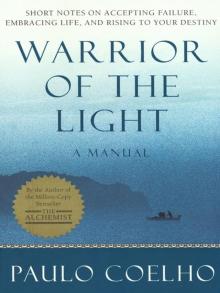 Manual of the Warrior of Light
Manual of the Warrior of Light By The River Piedra I Sat Down & Wept
By The River Piedra I Sat Down & Wept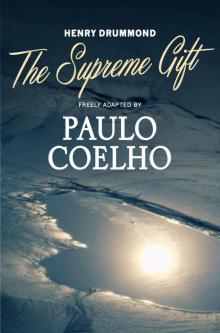 The Supreme Gift
The Supreme Gift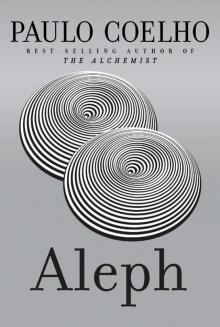 Aleph
Aleph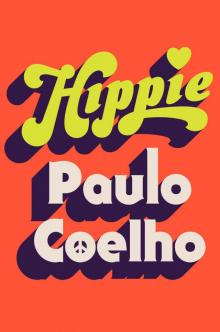 Hippie
Hippie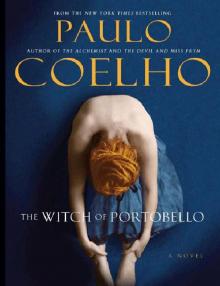 Witch of Portobello
Witch of Portobello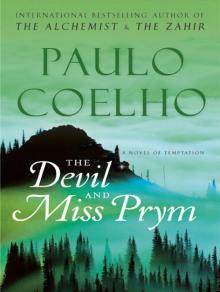 The Devil and Miss Prym
The Devil and Miss Prym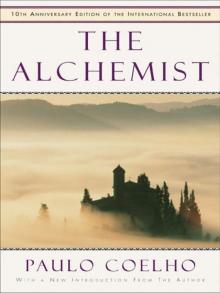 The Alchemist - 10th Anniversary Edition
The Alchemist - 10th Anniversary Edition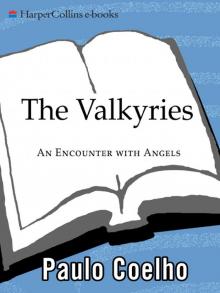 The Valkyries
The Valkyries